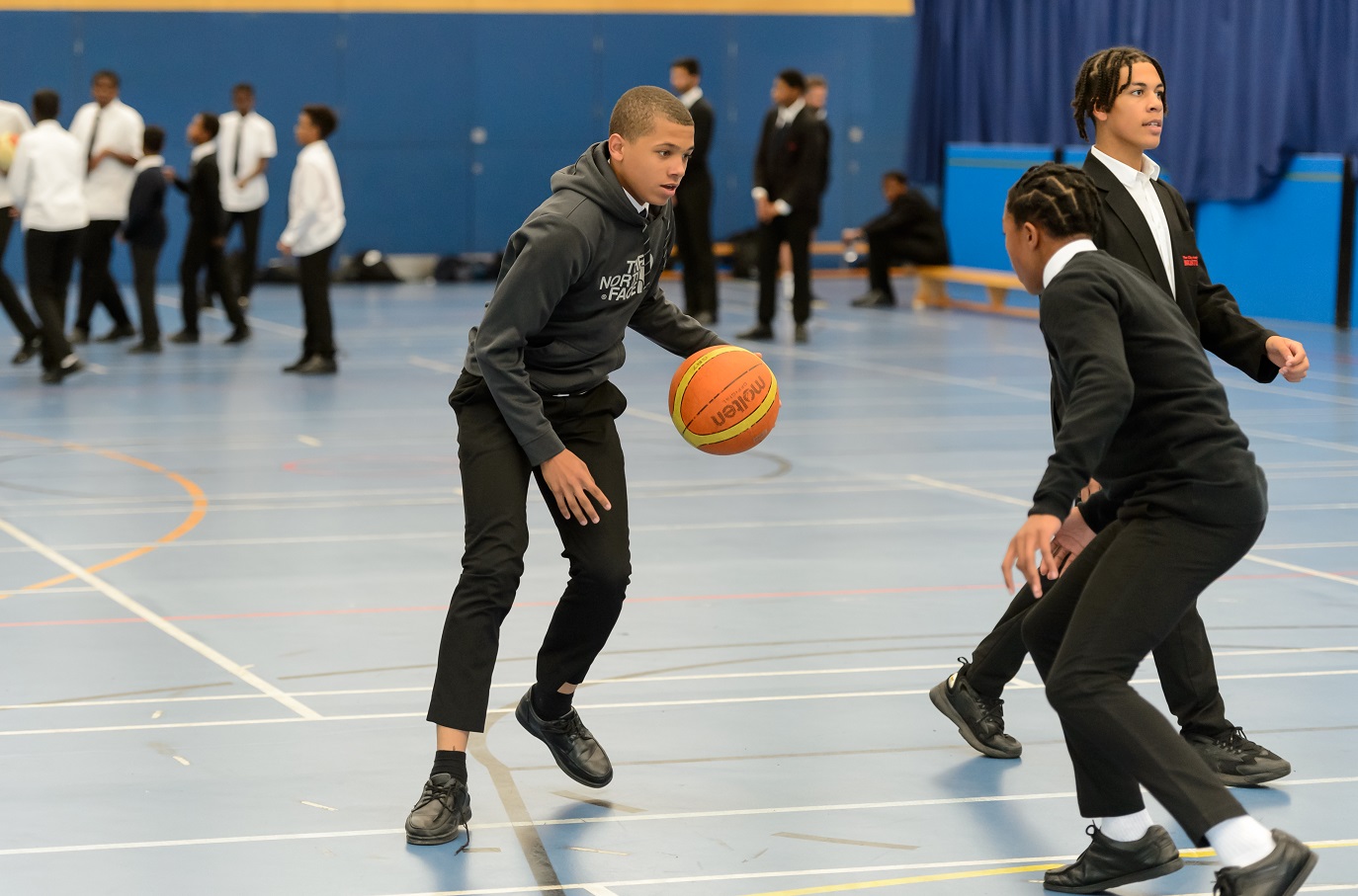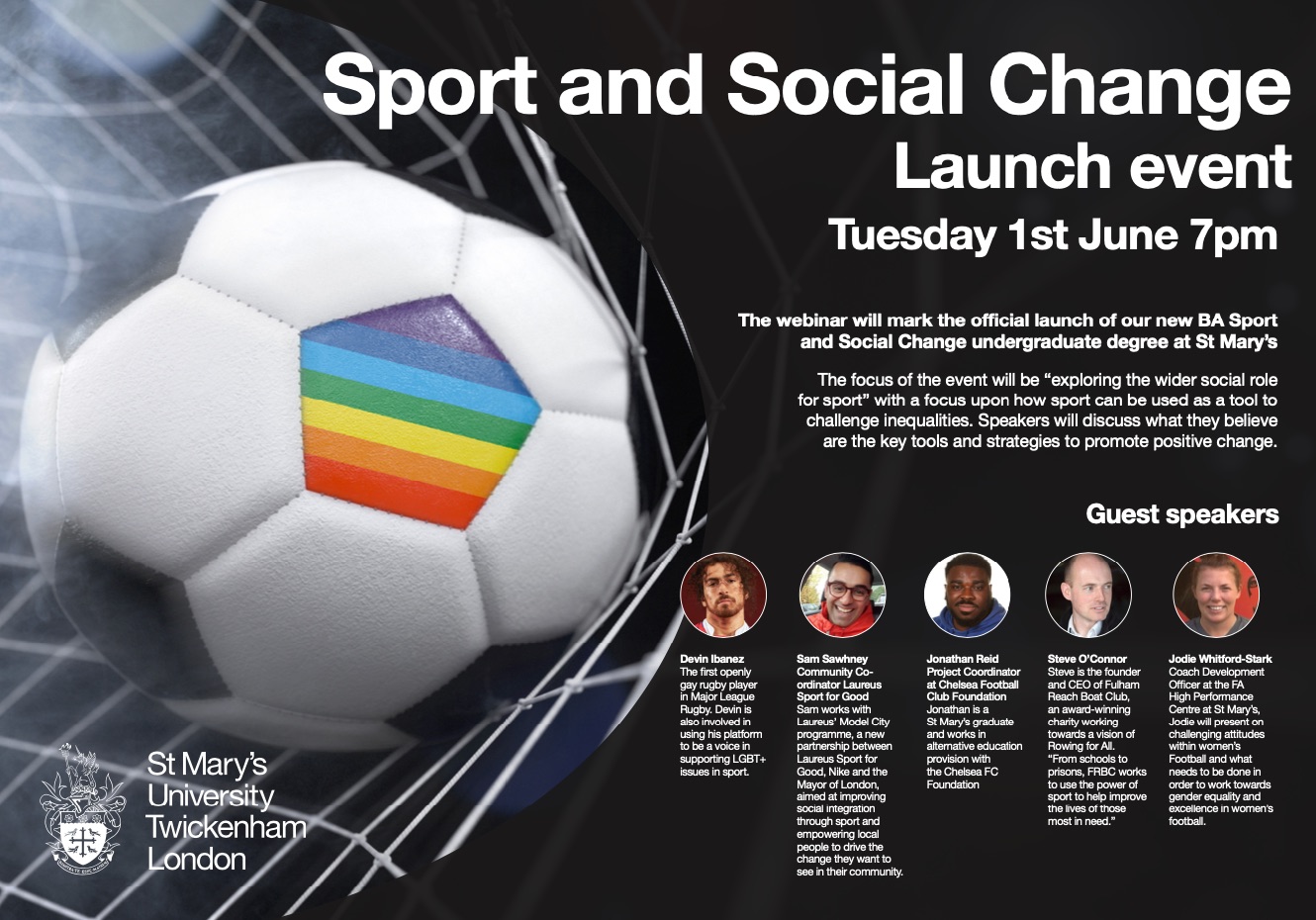One of three Universities supporting ConnectSport’s journalism project is St Mary’s University Twickenham, and on Tuesday 1st June it will hold a launch event for its first BA Sport and Social Change undergraduate degree. We spoke to Michael Hobson, Senior Lecturer at the University’s Department of Psychology and Pedagogic Science, about the new degree.
Hi Michael. Can you tell us about the degree course that is being launched?
The new programme in ‘sport and social change’ looks to provide an opportunity for students to develop the skills and knowledge needed to use sport as a tool for good in society. The idea is to design a programme which really builds young people and assesses them as authentically as possible. Instead of just learning about sport as a tool for social change, the programme looks to create opportunities for students to get hands on community sport and sport for development initiatives throughout the course. It probably sounds like a cliché, but we’ve really tried to think about how students can ‘be the change’ while studying as opposed to just talking or writing about it.
What has prompted you to introduce the course now?
At this time there’s a desire for sport to do more than just being about excellence or escapism. Behind possibly the arts we’d argue that it’s the next most influential part of popular culture in reaching the population. There seems to be a real desire from the young people we talk to for social change. However, most people we’ve met who work in sport for development seem to end up in it through non-linear routes and we are not always sure young people know how to get into it.
We really wanted to design a programme where students could be part of the change while studying and this is something we’ve tried to build in to nearly every module. Whether this is guided learning activities with partner organisations built into lectures, work placements, designing and delivering projects or doing research for a local sport for development organisation, this is all built in to the curriculum.
There seems to be a good mix of research and practical-based elements. Why did you feel this was necessary when designing the course?
By using lots of project-based learning, experiential learning and the opportunity to for alternative assessments such as writing blogs, creating digital marketing strategies, community engagement and running and evaluating projects we hope that students will be able to develop a range of skills required for the industry. However, we also strongly believe that while engaging in these activities students should be informed by research too.
We believe that by providing both the knowledge from research and the practical skills and experiences this will provide students with a unique toolkit when entering the workplace. For example, when students organise an inclusive event they can use research to understand the needs of the population, while using practical skills to make it come to life.
How are you looking for community sport and sport for development organisations to get involved?
We are really hoping to build guided learning activities into our modules where students spend time with community sport organisations putting theory into practice. We are also really keen to engage with as many guest speakers from industry as possible. Where possible we really want to provide students with a diverse range of guest speakers from all backgrounds currently working in community sport and sport for development organisations.

In addition, we are really keen to support organisations with student placements, and students completing their research projects with organisations in a way which can benefit the student and the organisation. We recognise how important research can be for funding in community sport, however we are also aware that not every organisation will have a budget for research so we believe this could be a beneficial solution for all.
How can ConnectSport readers help you?
We have our online launch event coming up on June 1st so attending that and hearing about the programme could be a starting point. In addition, we have an online open day on June 19th and an on-campus open day on June 26th. If anyone thinks they know a young person who might be interested in this programme directing them towards these events could be really helpful. They should also keep an eye out for any future webinars and events at this link.
Finally if they were interested in building a relationship with us and getting involved then we’d really love to hear from them too. Just drop me an email [email protected] or follow Twitter @ba_change.










